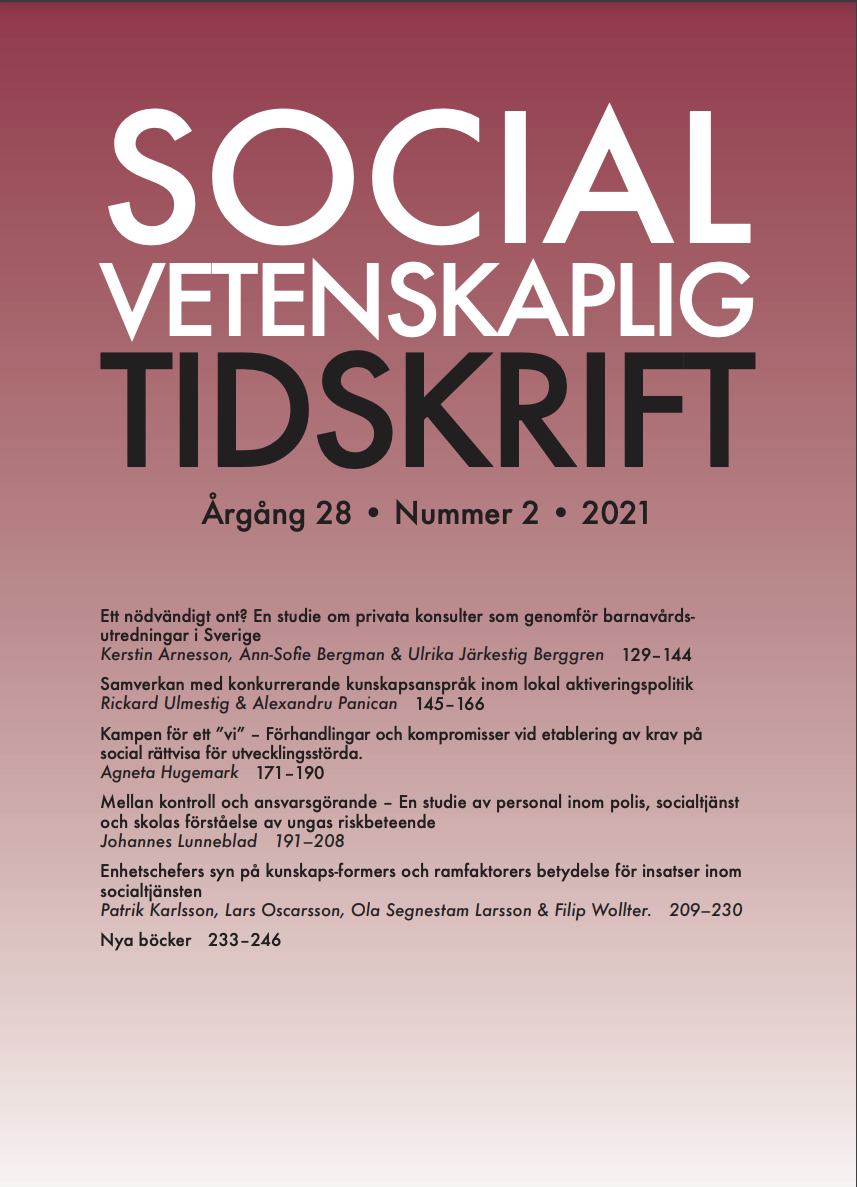Competing institutional logics and cooperation within local activation policy
DOI:
https://doi.org/10.3384/SVT.2021.28.2.4253Abstract
Interagency cooperation is described by policymakers as a solution to various problems within the activation policy aimed at unemployed. We problematize this by using the theory of competing institutional logics. The aim is to understand local activation policy by studying cooperation between municipalities. We have conducted eleven group interviews with local managers of the Public Employment Service, the municipal social assistance unit and the municipal labour market unit. The results show that cooperation is difficult due to competing institutional logics. However, cooperation as hybrid logic can to some degree handle the competing logics, using shared points of departure. One example is a joint dependency between the organizations. There are few and weak regulations that can help the Public Employment Service and the municipality to cooperate. The weak and vague rules forced the organizations to negotiate in every municipality. This makes the content of Swedish activation policy random, unclear and heavily dependent on local arbitrariness. But, while cooperation can solve problems within activation, it also can reproduce inequality. Those who depend on local activation, among whom poor, long-term unemployed, people with disabilities and non-native born Swedes are over-represented, risk having weak rights and the effectiveness of the policy can be questioned.
Downloads
Published
Versions
- 2022-07-11 (3)
- 2022-07-11 (2)
- 2022-03-08 (1)
How to Cite
Issue
Section
License
Copyright (c) 2022 Socialvetenskaplig tidskrift

This work is licensed under a Creative Commons Attribution 4.0 International License.
Allt material i Socialvetenskaplig tidskrift publiceras sedan 2022 (Vol 28 Nr 2) med omedelbar öppen tillgång (open access), under Creative Commons-licensen CC BY 4.0. Upphovsrätten till innehållet tillhör respektive författare.
Allt innehåll i tidskriften är fritt tillgängligt utan kostnad och får fritt läsas, laddas ned, kopieras, delas, skrivas ut och länkas. När innehållet används måste författare, källa och licens anges. Författaren kan fritt göra sin publicerade text tillgänglig på institutionella och internetbaserade arkiv, exempelvis sitt lärosätes digitala arkiv eller andra tjänster för detta.
Inga publiceringsavgifter tas ut vid publicering i Socialvetenskaplig tidskrift.


